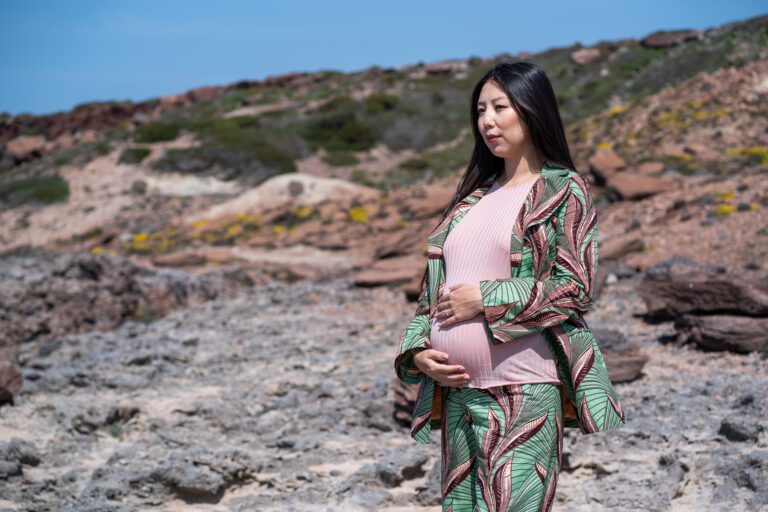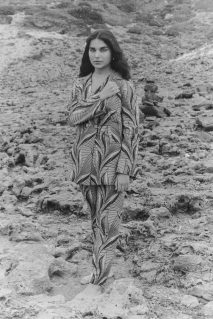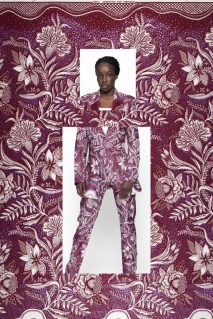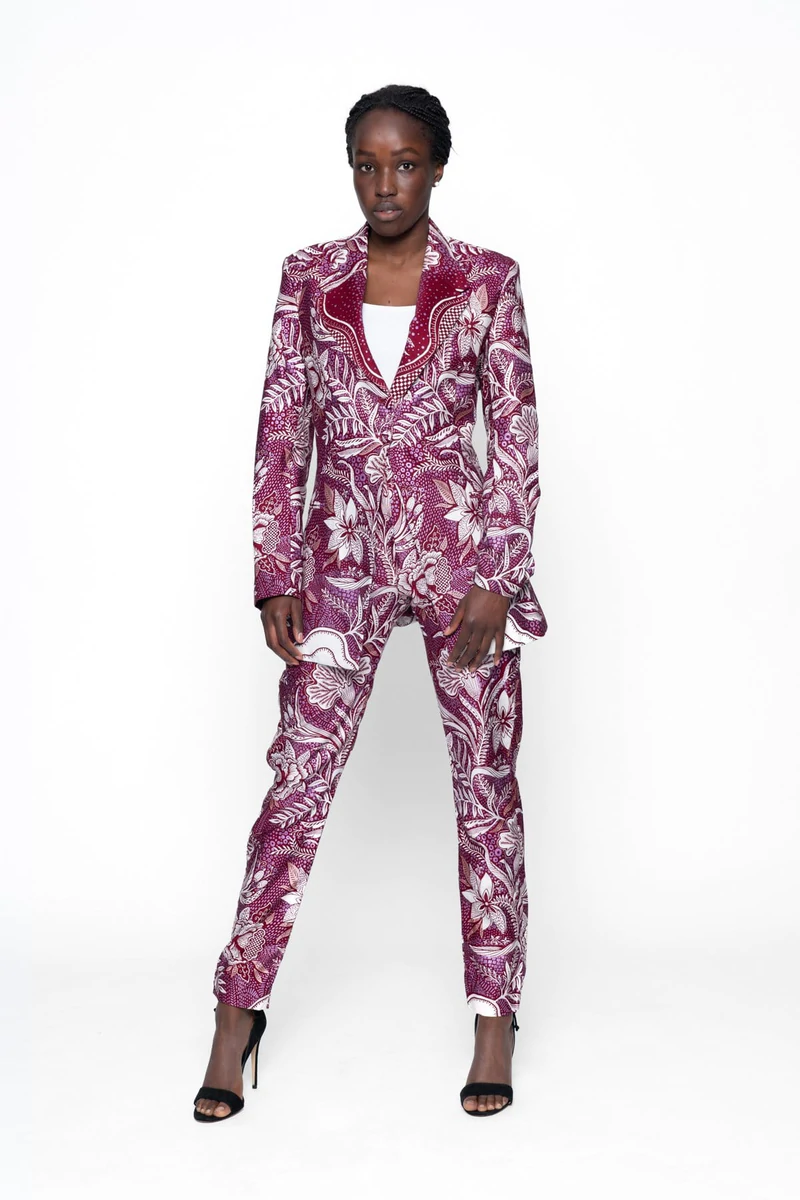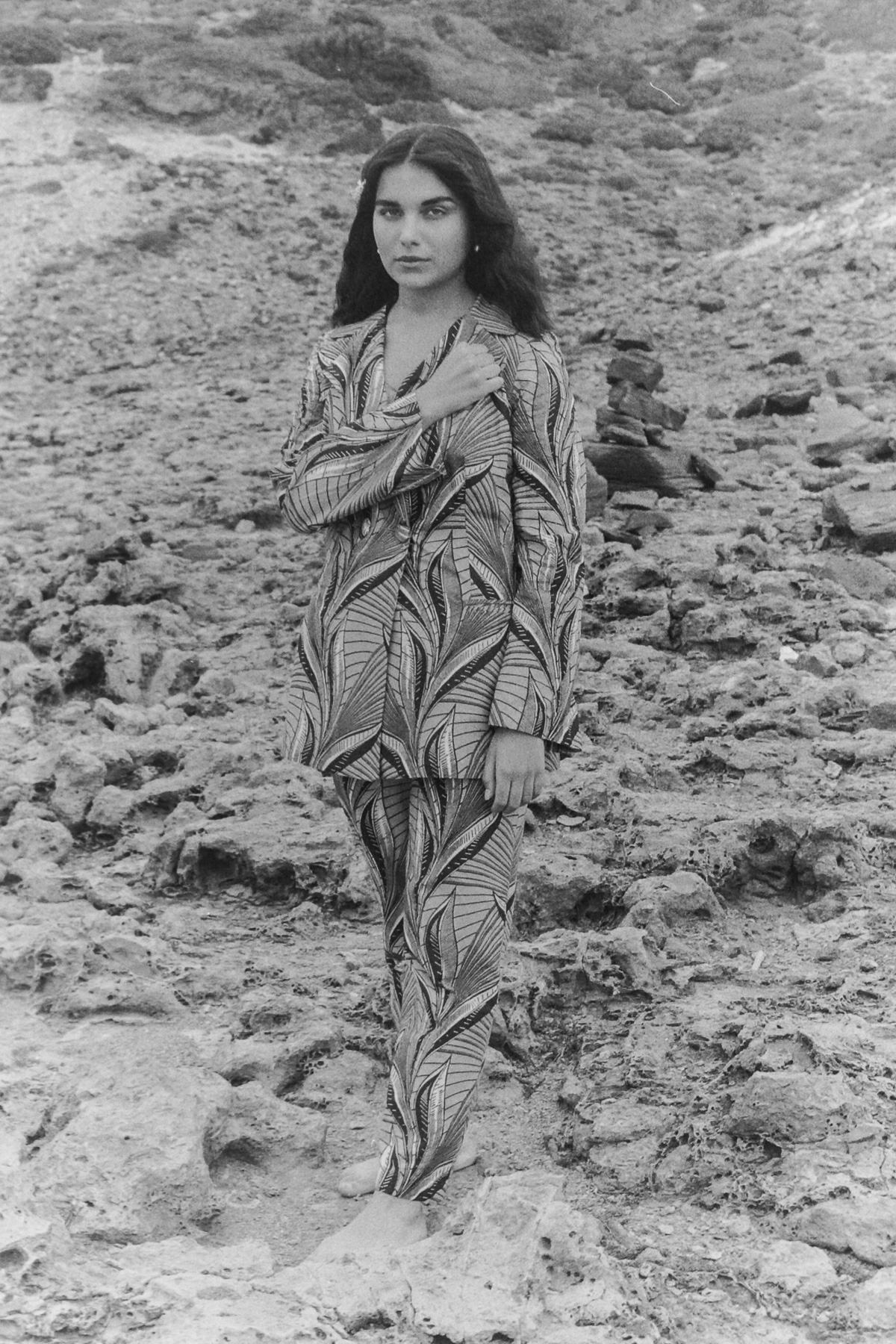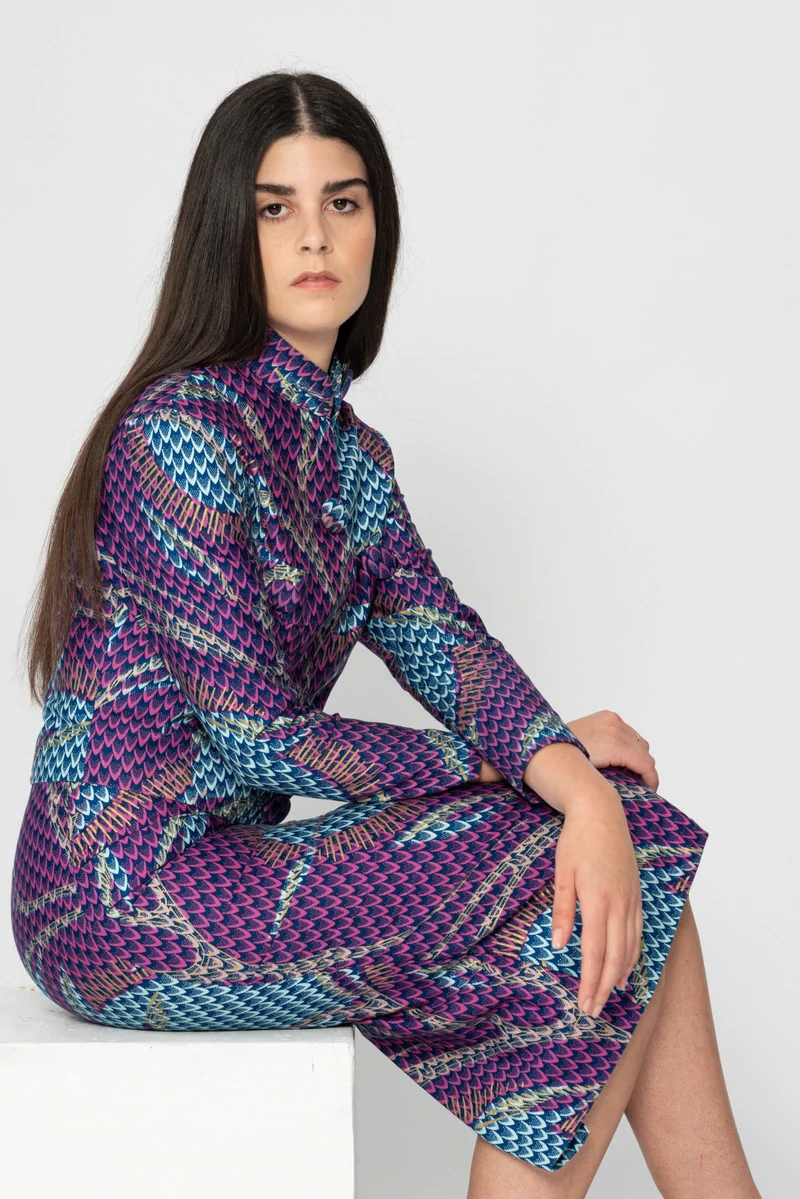Take-Aways from Reimagining Business Models for Inclusive Growth & Sustainable Development
The second webinar of the Conscious Beauty series took place on 26th September and is available to rewatch on YouTube. Re-Imagining Business Models for Inclusive Growth & Sustainable Development focused on the stories of the 3 social entrepreneurs on our panel. The conversation took place between:
Moderator:
- Sana Khan, Founder of Golak
Speakers:
- Aurora Chiste, Founder & CEO of Maakola
- Walfredo della Gherardesca, Co-Founder & CEO of Genuineway
- Anna-Maja Björkenvall, CEO at Lxmi
Topics of discussion included: making conscious fashion and beauty a reality, the impact of the pandemic on current business models, using impact sourcing models, job creation and poverty alleviation, social impact business models, blockchain initiatives, the use of technology in conscious consumption, and the future of sustainable and ethical transparency.
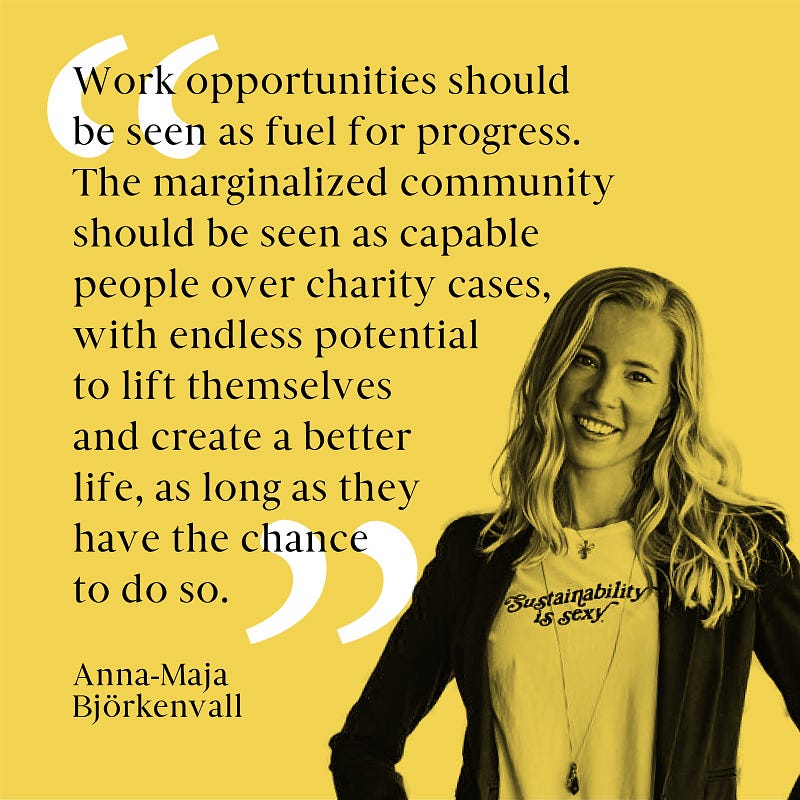
Anna was the first of our panelists to share her thoughts as the CEO of a conscious and “clean” beauty company. Anna referenced the late Leila Janah, quoting “one person an create a lot but together we can create real change.” The key ingredient in Lxmi products is a nut sourced in Uganda. Anna commented about how impact sourcing model is the way Lxmi works and is key to a positive future in the industry. They are able to work with the marginalized communities and teach them about preservation and how it can benefit them.
By working directly with the communities in this region, Lxmi are able to give them a voice and enable them to lift themselves out of poverty through dignified work.
Anna spoke about how the traditional and foreign aid model is not always beneficial and can create an imbalance in the dynamics of dependency. Social impact is key to the future of sustainable brands:
“Work opportunities should be seen as fuel for progress. The marginalized community should be seen as capable people over charity cases, with endless potential to lift themselves and create a better life, as long as they have the chance to do so.”
The idea of brands and consumers being more multidimensional in their thinking, beyond “eco-friendly” initiatives is the way to go, as well as looking at the long-term positive effects of your endeavor.
Both Anna and Aurora agreed that you should not have to choose between a product that does/looks good and does good in the world.
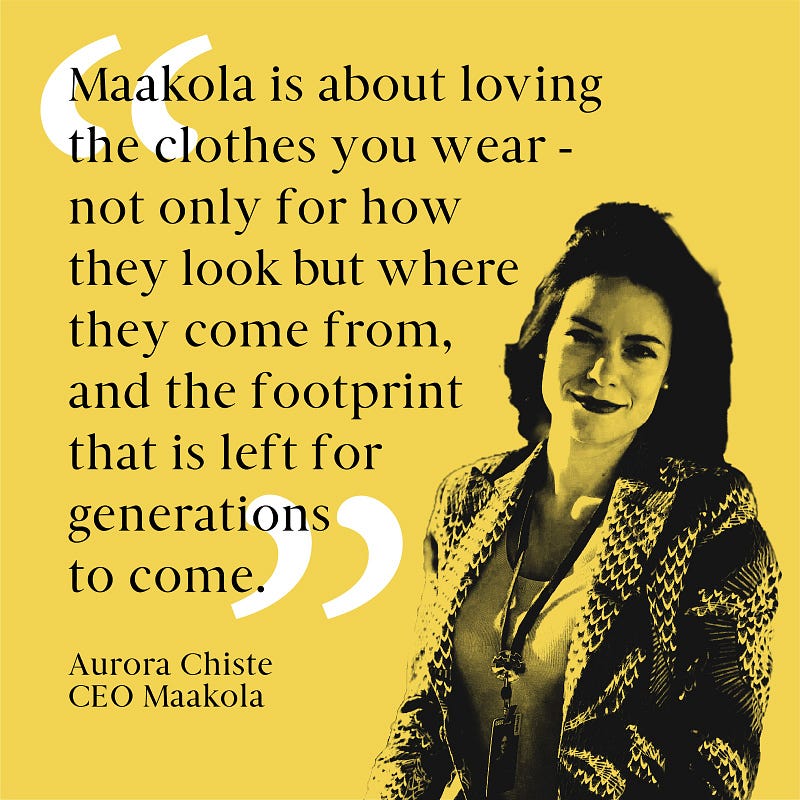
Looking at the whole supply-chain is another essential in social impact business ventures. Aurora talked about how the impact sourcing model adds value to the communities where the product is sourced. This model takes into consideration the social and environmental impact. “Maakola is about loving the clothes you wear — not only for how they look but where they come from, and the footprint that is left for generations to come.” When we buy a piece of clothing, we should look at the impact of it now and in the future.
Aurora suggested that consumers have the power to decide how the world can change, and with fashion, clothes can become a vehicle that shows where we have come from and where we are going. This is where the idea of blockchain comes in. Walfredo created Genuineway using blockchain technology to show the transparency and narrative of brands.
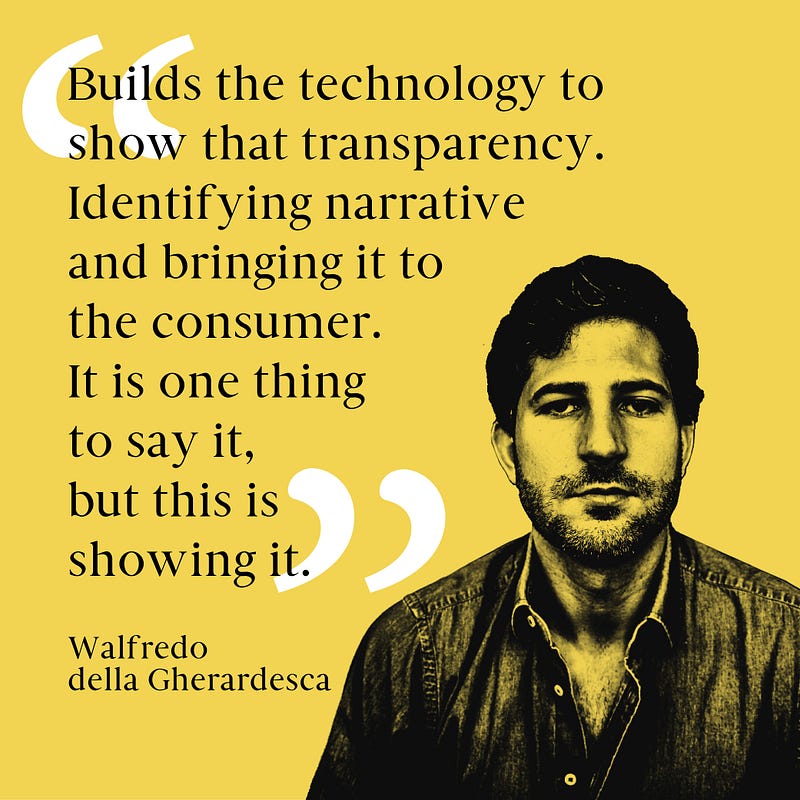

Explaining it as an outer-certification space, it is a way to be open and show consumers everything about the brand. Walfredo explained that transparency between brands and consumers is so important, as it means being open about everything. Genuineway “Builds the technology to show that transparency. Identifying narrative and bringing it to the consumer. It is one thing to say it, but this is showing it.”
Aurora and Walfredo are working together to bring this blockchain technology to Maakola. This technology allows you to:
- Scan a code
- See who made the clothing
- What the clothing is made from
- What the story behind it is
This brings further consciousness to the consumer and is a world away from old business models that put profit first. This more holistic approach has an entire social impact.
“We have a responsibility as brands to provide more tools to consumers to understand what is behind. This is how we can go from building business models that are abstract to transparent.”
The discussion ended with these final take-aways:
- Changing traditional business models to a more transparent, impact source model is the way of the future for big brands
- Consumers are becoming more aware of sustainability and ethical brands
- For people starting a social impact business venture, don’t cut corners
- Transparency between brands and consumers is vital
- Making the consumer conscious is paramount
- Sourcing products or ingredients from low-income communities will help alleviate poverty in those communities
- Where someone is born should not be a determining factor to the opportunities available to them
- Enable marginalized communities to lift themselves out of poverty
- Step away from the traditional foreign aid models
- Look at the long term positive effects of your endeavor
- Create products that look good/are good for you and do good in the world
- Look at social issues in the society you care about and see how you can feed that into the core of your business in a long-term way
- The pandemic has given us an opportunity to rebuild the way businesses work
Thank you so much for joining us for Re-Imagining Business Models for Inclusive Growth & Sustainable Development. If you happened to miss this valuable insight into sustainability and business models in the fashion and beauty worlds, then don’t worry. You can access the recordingshere and listen whenever you want.
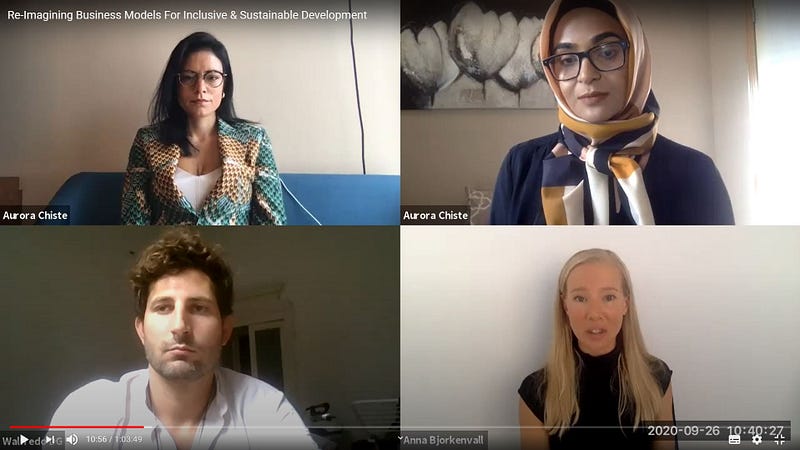

Join Us For The Next Discussion
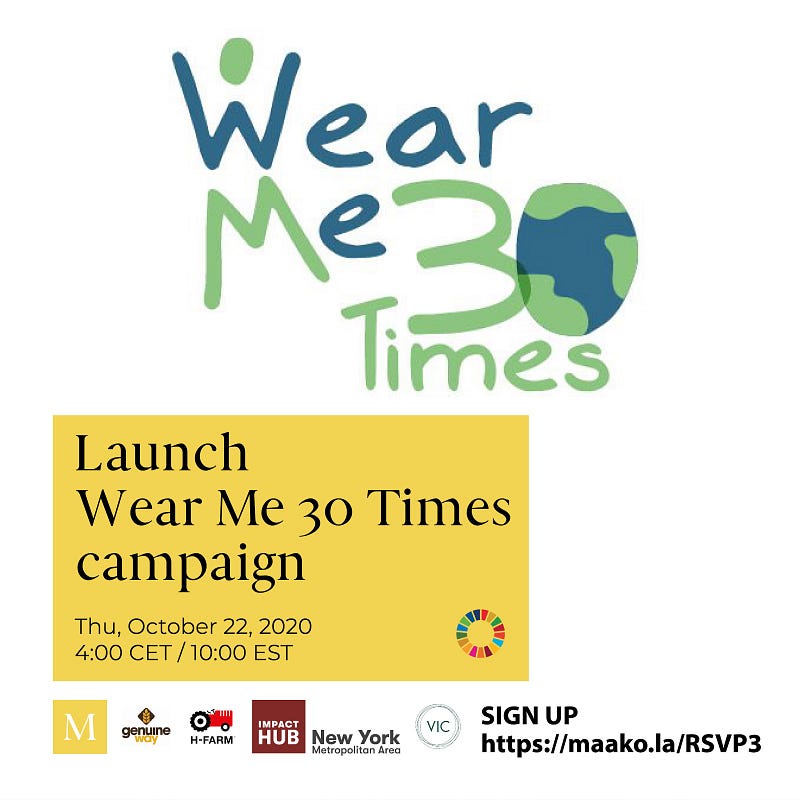
There is still time to RSVP your space for the next webinar in our Conscious Beauty series.
On 22nd October at 10:00 am EST, we will be hosting our next free, online event: WearMe30Times
WearMe30Times; a ground-breaking, slow fashion initiative that will breathe life back into your wardrobe by encouraging you to get more wear out of your clothes. Why you might ask? The more often we wear a single piece of clothing, the smaller our fashion footprint is — and that has a direct impact on our planet.
Ethical fashion brand Maakola and conscious consumption tech company Genuine Way have joined forces to ask the question; what is the lifespan of your clothes?
We will be joined by Aurora Chiste, Founder & CEO of Maakola and Walfredo della Gherardesca, Co-Founder & CEO of Genuineway

